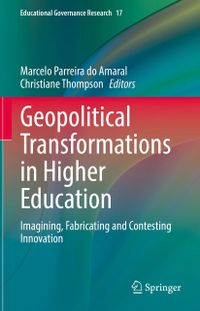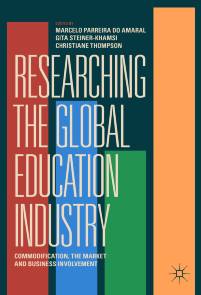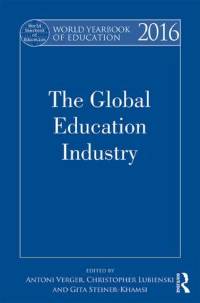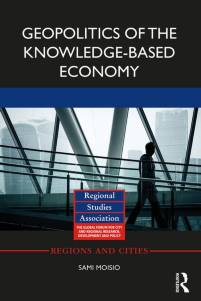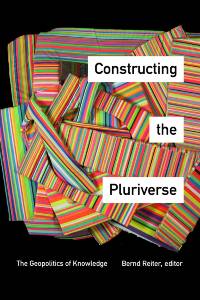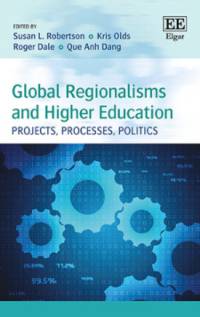Participants & Presentations
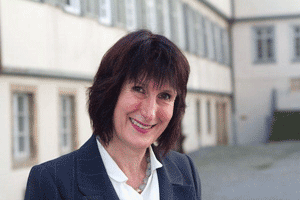
S. Karin Amos
University of Tübingen
S. Karin Amos is Professor of Education at University of Tübingen, Germany, with a special focus on International and Comparative Education as well as Intercultural Pedagogy. Her research interests include international governance in education, the relation between the concepts governance and governmentality as well as the question of the relation between political and pegagogical formation.
Presenting on: World making: contested concepts and their implications for education and science
Many of the current educational policies draw on the alleged necessities of globalization to justify the pressures on education systems as well as on individuals to perform, exceed, persevere and ultimately to succeed. However, there is an alternative discourse emerging that draws on various sources but has as a common denominator the contestation of globalization—“Mondialisation”. It replaces the logic of competition, growth and progress along standardized paths with a plea for the multiplicity of the world, the many ways of “world making”. Often it also questions the human-centeredness arguing for a new kind of humbleness which accepts that the survival of the “human race” depends on multi-species survival and a deep questioning of human uniqueness. Education as a discipline and as a scientifically founded (Western) concept is ill prepared to meet these challenges. At the same time, the limits of the established educational concepts are obscured, because of a globally enforced epistemic foundation which does not allow to be questioned. Ultimately, this is a new form of “science wars”, because the possibilities but also the limits of science are at stake – as well as the question what counts as science and what does not.
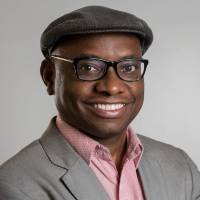
Dr. Dr. Dell Delambre
The Baptist College, Rio de Janeiro
Dr. Dr. Dell Delambre is Professor of Epistemology at the Baptist College in Rio de Janeiro, Brazil. His research interests are the tensions between different models and paradigms of knowledge and their impact on practice in different societal fields, such as schools, universities, companies, local communities, development projects and public policies. His Ph.D. proposing a new theory of knowledge for the XXI century focused on the Creative Tension of Sense and the Whole Approach (Ganz-Methode) and received the highest praise of the Department of Social Sciences, Education and Administration of the Lusophone University of Humanities and Technologies, in Lisbon, Portugal. Applying this new theory, he has developed a coaching methodology for the development of human competences, new leadership and organizational development—the Sustainability and Whole Impact Certification: WTS-100, which is currently being implemented in different organizations, such as schools and companies.
Presenting on: Creative Tension of Sense and a Whole Approach to Knowledge and Practice
An important theme of a New Geopolitics of Knowledge would necessarily be related to epistemological issues, fostering thus a rethinking of the nature, production, and dissemination of knowledge at a global level. Such a New Geopolitics of Knowledge is faced with the challenge of dealing with the fast-paced transformations of today that impact both human relations and the sustainability of life on the planet. At the same time, it would need to develop itself under the (hegemonic) conditions of modernity, which raises important questions and tensions deriving from the simultaneity of the old and the new. What are the chances of thinking a New Geopolitics of Knowledge from the great tensions between the birth of a new world within an ancient one? This paper argues that it is exactly these tensions that offer great opportunities to create something new. The presentation first describes the tension between an ancient paradigm that did not yet die and the new one that has not yet been fully born. Second, it argues that the juxtaposition of different models of tension allows for the development of methodologies capable of apprehending realities that are in the movement of rapid changes, or in other words, a whole approach or Ganz-Methode. Bringing together models of tension and the whole approach constitute an epistemology of the creative tension of sense that aims at bridging both theory and practice and different ways of knowing, being and doing—both essential elements of a New Geopolitics of Knowledge. In order to illustrate the argument, in a third step, the paper presents and discusses the implementation of such a coaching methodology in a school environment.
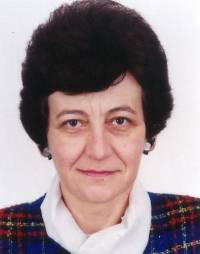
Pepka Boyadjieva
Bulgarian Academy of Sciences
Pepka Boyadjieva is Professor at the Institute for the Study of Societies and Knowledge at Bulgarian Academy of Sciences and Honorary Professor of Sociology of Education at the University of Nottingham. She is a member of the Editorial Board of the Journal of Social Science Education, International Journal of Lifelong Education and of the Bulgarian journal Sociological problems. Her research interests are in the field of education with an emphasis on higher education, university development, educational inequalities, lifelong learning and school to work transitions. Currently, Boyadjieva is a member of the Network of Experts on the Social Aspects of Education and Training (NESET II 2019-22) and leads the Bulgarian team of the ENLIVEN (Encouraging Lifelong Learning for an Inclusive and Vibrant Europe) project, funded within Horizon 2020 programme.
Presenting on: (Un)avoidable clash: Higher education at the altar of its mission or rankings
Nowadays, higher education institutions (HEIs) throughout the world face challenges that interfere not only with their functioning but also with their very identity as institutions. These are challenges stemming from the changed context in society as a whole, in science and in the wider realm of education, but also from the increased status hierarchy among HEIs, legitimised and maintained by various rankings. At the same time, differentiation of missions and profiles in HEIs is still widely seen as a means of adjusting higher education provision to the growing and increasingly diverse demands of the European labour markets for a highly qualified labour force. Some HEIs however have adopted a purely instrumental role for higher education as entirely subordinated to the demands of the labour market. According to many authors, the result of these developments is that higher education and its main institution – the university – have fallen into crisis and are losing their legitimacy as they move away from their historical character and functions. Against this background the paper will discuss the tension between the plurality of missions of HEIs and the inevitability of global rankings, which – in most cases – are based on narrow and one-sided indicators. In order to take into account the diversity of contributions of higher education at both individual and societal level a multidimensional model of the missions of higher education will be elaborated. The model will refer to intrinsic, instrumental and transformative/empowering role of higher education as an institution. Global rankings will be criticized as neglecting the diversity of HEIs in terms of their mission, goals and structure and as affirming a limited understanding of the public benefit derived from higher education.
Stephen Carney
Roskilde University
Stephen Carney Carney is Associate Professor in Comparative Education Policy at Roskilde University in Denmark. His research focuses on global educational reform and comparative method. He has studied university governance in Denmark, teacher preparation in England and China, and school development in Nepal and India. He has been President of the Comparative Education Society in Europe (CESE) since 2016.
Discussant
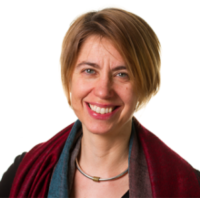
Eva Hartmann
University of Cambridge
Eva Hartmann is University Lecturer at the Faculty of Education, University of Cambridge. She has published widely on the internationalisation and regionalisation of higher education, cross-border mobility of skilled labour, UNESCO, international trade in services and European Integration. Her current research project focuses on transnational private authority and examines the role of multinational companies in promoting international qualifications standards. This project is funded by the European Research Council in the framework of the research project Institutional Transformation in European Political Economy.
Presenting on: The shadow sovereigns of global education policy: the geo-economics of global norms
This contribution explores how multinational companies (MNCs) have managed to establish a policy sphere that sets its own international standards for education. It criticises education policy studies for leaving the study of corporate education mainly to management and human resource studies. As a consequence, education researchers tend to ignore an important policy area that has emerged out of the public limelight. This contribution is informed by a retroductive methodology and explores the ‘extrastatecraft’ (Easterling 2014) of companies by combining empirical research with a theoretical discussion of transnational private authority. Any speculation about the return of the nation state that does not account for the privatisation of policy making and the influence of multinational companies as the new global shadow sovereigns risks failing to see that the nation state as we know it no longer exists.
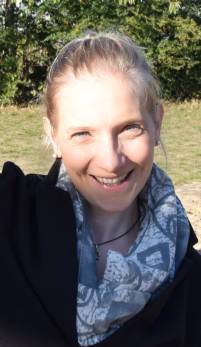
Sigrid Hartong
Helmut-Schmidt-University Hamburg
Sigrid Hartong is a postdoctoral research fellow at the Department of Education at the Helmut-Schmidt-University Hamburg, Germany. She holds a PhD in Sociology (University of Bamberg) and a Habilitation degree in Education Science (Helmut-Schmidt-University Hamburg). Her main scholarly interests include, on the one hand, global-local educational reform dynamics, both from single-case and international comparative perspectives. On the other hand, her work focuses on the growing datafication and digitalisation of education policy and practice, particularly visible in the rise of (big) data infrastructures and mobilities. She currently leads a DFG-funded project about digital school monitoring in state education agencies, as well as part of a collaborative BMBF-project on the ‘datafied’ school.
Chair & Discussant
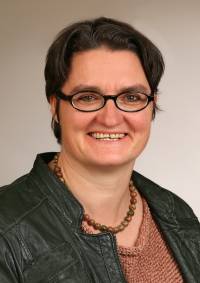
Sieglinde Jornitz
DIPF - Leibniz Institute for Research and Information in Education
Sieglinde Jornitz works as senior researcher at the DIPF - Leibniz Institute for Research and Information in Education. Since 2006 she works for the unit “International Cooperation in Education - ice” at DIPF. Her main research interests focus on international and European education policy and school education. Sieglinde combines her overall interest in national and international education policies with the analysis of specific documents from educational practice, like school interaction transcripts or images. She is an expert in qualitative analysis of visual documents and a regular lecturer at the Goethe University in Frankfurt/Main in the field of teacher education. Together with Marcelo Parreira do Amaral (University of Münster, Germany) she has started editing the handbook on “The Education Systems of the Americas”. She is a member of several research groups on reconstructive hermeneutics in education and on digital media. Her latest research project deals with the use of data and the construction of school in a datafied society.
Discussant
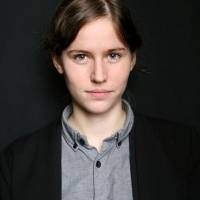
Denise Klinge
University of the Bundeswehr München
Denise Klinge is a postdoctoral researcher at the University of the Bundeswehr, Munich, Germany. In her dissertation, she applied the documentary method to analyze parental decisions for secondary schools combining expectancy–value theories and habitus theory. Her main fields of interest are educational decisions, educational inequality, and practices of technology development from an educational perspective. Her current research investigates how algorithmic logics work in learning and education.
Chair

Sami Moisio
University of Helsinki
Sami Moisio is a human geographer who works on the interface of regional studies, planning and politics, and a Professor of Spatial Planning and Politics at the University of Helsinki. Sami’s research interests include state spatial transformation, political geographies of Europeanization, city-regionalism, political geographies of economic geography, and the geopolitics of the knowledge-based society. Much of his current research is concerned with the ways in which different places, regions and spatialities (such as the “global”) are constituted, transformed and re-made in political processes and struggles, as well as in various social practices and knowledge production.
Presenting on: In what sense a geopolitical knowledge-based economy?
In what sense a geopolitical knowledge-based economy? The concept of geopolitics is not often associated with the term knowledge-based economy. Yet, it has become quintessential to argue that we are currently living in an era marked by the prominence of knowledge in all societal, economic and cultural developments, as well as pronouncements about the knowledge-intensive form of capitalism as an important subtext for inter-state relations and inter-spatial competition. In this presentation, I seek to geopoliticize the purportedly geoeconomic present, particularly as it unfolds in the strategies of knowledge-intensive capitalism and associated societal developments. I do that by first introducing the concept of knowledge-based economization which refers both to the material processes of knowledge-intensive capitalism (including subject formation), and to the processes whereby this form of capitalism is constructed discursively through imageries and objectifying social practices. Second, I proceed to claim that the phenomenon of knowledge-based economization includes significant geopolitical dimensions. I lay a foundation for comprehending the geopolitics of knowledge-based economization through three constitutive dimensions: geopolitical discourses, the production of geopolitical objects in calculative practices, and geopolitical subjects. Finally, I demonstrate that the process of knowledge-based economization has shifted qualitatively since the early 1990s. It first emerged in the form of late-Keynesian technopolization, and was produced in the strategies of the “entrepreneurial state”. Since the late 1990s, knowledge-based economization has manifested itself in all sorts of imaginaries and practices that are predicated on the idea of “smartness”. After the global recession in 2008, knowledge-based economization has again proceeded through new forms. Its latest phase has become increasingly salient in the constitutive imaginaries of the so-called start-up economy. In this context, capitalist societies are witnessing an expansion in the processes of entrepreneurialization and urbanization of the nation-state.
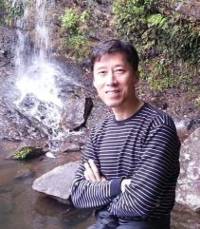
Jae Park
The Education University of Hong Kong
Jae Park reads at the Education University of Hong Kong. His research interests are in sociology and philosophy of education. He recently published in Comparative Education Review, Educational Philosophy and Theory, International Studies in Sociology of Education, Comparative Education, and Ethics & Behavior. He serves as the President of the Comparative Education Society of Hong Kong and as the Head of the International Education Research Group in the Centre for Lifelong Learning Research and Development of the Education University of Hong Kong. He is the Editor-in-Chief of the International Journal of Comparative Education and Development and Editorial Board member of the book series ‘Educational Leadership Theory’ for Springer.
Presenting on: The Two Faces of Geopolitics of Knowledge
Geopolitics of Knowledge (GPK) is real and of highest relevance because of the social imagery and discourse (Gee) of "Knowledge Societies." They, in turn, are based on Baconian insight of knowledge is power. Then, the interplay of powers will inextricably bring about struggles that end in master-slave relations (Hegel) surrounding knowledge. This paper discusses about the nature and dynamics of GPK. Two dimensions of GPK are articulated: Knowledge-production and Knowledge -transfer/exchange. Drawing on my recent works on Chen Kuan Hsing's post-colonial geopolitics (Park, 2016, 2017), it is argued that while the problematization of GPK has mainly been focused on knowledge production (this is the main argument by Chen's Asia as Method), such as who, what and how can politically sensitive knowledge be justified? Yet, this paper contends, knowledge transfer/exchange is indeed far more intriguing and important. I shall discuss the latter with a few illustrations: (1) In science, the battle of epistemologies that has silently but steadily hijacked the war of paradigms; (2) In politics, knowledge transfer has consistently been an instrument of imperialization; and (3) In socioeconomics, industrial espionage—the most important casus belli of global trade war—as the antithesis of knowledge transfer with no less GPK implications.
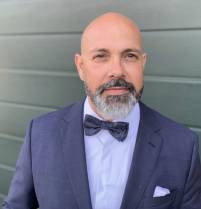
Marcelo Parreira do Amaral
University of Münster
Marcelo Parreira do Amaral is Professor of International and Comparative Education at the University of Münster, Germany. Parreira do Amaral is also member of NESET (Network of Experts on the Social Aspects of Education) funded by the European Commission. His main research Interests include international comparative education, education policy, international educational governance and its implications for educational trajectories, in particular issues of access to and equity in education.
Presenting on: Science and Education between economic and pluriversal imaginaries. A (New) Geopolitics of Knowledge?
Science and education are currently assigned one the most important roles in shaping and securing the future. In globalized discourses, they are framed as a panacea for all pressing social, political, environmental and economic issues in so-called knowledge societies or economies. In this context, science and education are subjects and at the same time the object of fundamental processes of change; they are at the forefront of a development that is transforming not only the (tertiary) education landscape, but also society as a whole. The presentation deals with the current focus on knowledge and information as an economic factor and on processes of knowledge production and dissemination as a strategic tools in the global economic competition. It contrasts this (new) geopolitics of knowledge with debates critiquing the hegemony of Western knowledge and colonial epistemologies that call for the construction of a pluriverse. While discerning between different meanings and understandings of the ‘geopolitics of knowledge, the first part of the presentation expounds recent findings on an emerging global education industry (GEI), which can be seen as a motor of recent developments and at the same time an specific manifestation of a new geopolitics of knowledge. Second, in taking a global perspective, it enquires into the rationales, logics and modes of operation of the GEI in order to deliberate on its transformative power. The discussion closes by raising questions as to the social dislocations gaped open by the GEI phenomena and the geopolitics of knowledge.
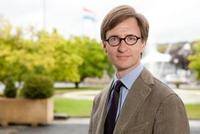
Justin J. W. Powell
University of Luxembourg
Justin J. W. Powell is Professor of Sociology of Education in the Institute of Education & Society. His comparative institutional analyses of educational systems chart persistence and change in special and inclusive education, in vocational training and higher education, and in science and research policy. After coordinating international dissertation fellowship programs at the Social Science Research Council (SSRC), New York, he was Research Fellow of the Max Planck Institute for Human Development, Berlin; Lecturer at the University of Göttingen; T.H. Marshall Fellow at the London School of Economics and Political Science; and Project Director at the Social Science Research Center Berlin (WZB). In Winter 2011/12, he was Visiting Professor of Sociology of Education at Leibniz University Hannover. He is also Research Fellow of the Institute of Higher Education Research of the Martin Luther University of Halle-Wittenberg, Germany.
Presenting on: Competition and Collaboration in Higher Education and Science: The Case of Educational Research Governance
How we collaborate and compete to find solutions to the problems and challenges of our age vastly impacts our individual and group success and well-being. Interdependent, the institutions of education and science have dramatically expanded. Today, scientists in nearly all countries contribute to our shared stores of knowledge, with research universities the driving force behind unexpected pure exponential growth in scientific production. Competition—regional, national, organizational, and individual—has become more potent—with performance measures, comparative indicators, and formal evaluations continuously generated and used in decision-making in the academy and by governments. Simultaneously, collaboration across institutional, disciplinary, organizational, and cultural boundaries expands the possibilities of discovery and produces the most influential science. Competition and collaboration at the nexus of higher education and science demand enhanced attention as they shape the future of scientific innovation and production, with its understudied yet increasingly incontrovertible effects on individuals and societies. As a case study, educational research (ER) underscores this paradoxical situation, as the field has undergone profound institutional, structural, and cognitive changes over the last quarter century. Characterized by its multidisciplinary character and the expanding extent and scope of its use in the academy and governance, educational research can be considered a particularly complex field. The found substantial changes in educational research governance are presented on two analytical levels, transnational and national: the EU and Germany, Norway, and the UK. Transnationally, the European Framework Programmes have become a key driver in the Europeanization of research policies, defining research priorities. Transnational mandates for educational research rest on notions of “evidence-based” policy-making and practice in an increasingly internationalized community. Yet various new forms of governance, especially national programs (“programmification”) and evaluation systems have emerged, steering the development of the discipline(s) by defining what counts as a research priority or as “excellent”, “relevant” or “impactful” research simultaneously supporting cross-national and cross-disciplinary collaboration. Thus, competition and collaboration must be analyzed in concert to understand the new geopolitics of knowledge production.
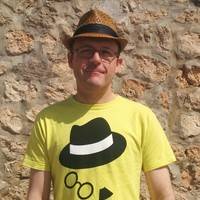
Xavier Rambla
Universitat Autònoma de Barcelona
Xavier Rambla is Associate Professor of sociology at the Universitat Autònoma de Barcelona. His recent research focuses on lifelong learning policies and vocational education and training in the European Union. Previously, he worked on the Civil Society Education Fund (2012-14), Education for All in Brazil (2009-2011), education and anti-poverty policies in the Southern Cone (2003-2008), the spatial dimension of educational inequalities (2001-2005), and critical co-educational action- research (1995-2001).
Presenting on: The European Union Education Discourse. Between ‘Innovation Union’ and the ‘Skills Agenda’
This paper will elaborate on the geopolitical imaginations of education and innovation in the European Union. Since the inception of the Lisbon Agenda in 2001, research on EU policy-making in education and related areas has deployed two main patterns of governance. First, the Commission, the member states and networks of stakeholders (in which experts play a major role) have constituted variable scales of governance as well as complex interactions between those operating in each scale. Second, the Commission routinely generates encompassing discourses on better regulation and open coordination that disseminate causal narratives on the expected impacts of given policy frameworks. In conceptual terms, these patterns of governance are well researched, most prominently by scholars such as Bob Jessop, Michael Keating and Claudio Radaelli. Against this background, my paper will explore to what extent the Commission associates rhetorical references to ‘innovation union’, the ‘skills agenda’, ‘inclusive, smart and sustainable growth’ with an array of issues related to education policy (e.g. preventing early school leaving, guaranteeing opportunities for the youth, widening adult education). The paper, first, reviews the conceptual bases previously mentioned in order to sharpen the analytic lenses that will be used. Second, the paper examines innovation and education policies that seem to be fashioning particular understandings of what the EU region is and of what different European regions may become. in this vein, Jessop’s concepts of discursive (and maybe, agential and structural) selectivity is used to shed light on the recent modulation of the Commission’s discourse, not least regarding the alleged contribution of these policies to overcoming the economic, fiscal and social crises that have devastated some countries.
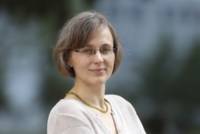
Christiane Thompson
Goethe-University Frankfurt am Main
Christiane Thompson is Professor of Theory and History of Education at the Goethe-University Frankfurt/Main. Her work focuses on: philosophy of education, cultural studies of education and educational research, educational authority at the crossing point of language and power, as well as critical theory of education.
Presenting on: The Performativity of Digitization. Universities and Higher Education between Innovation and Marketing
This contribution focuses on the changes of the university and higher education in the age of ‚digitized innovations’. More precisely, it focuses on the digital environments that universities set up in order to make themselves attractive to possible students. These digital environments will be analyzed with respect to the ways that they shape what it means to study at the respective university. The so-called online-assessment-tools for students-to-be („OSA“) are an interesting example in this context. They provide extensive self-representations of the university within the framework of global competition. Additionally, they offer guidance and counseling for future students: They appeal to potential students to examine and estimate their own chances of becoming a ‘successful student’. As of consequence, optimization and risk assessment become central motives in the subject formation of students. The paper explores these subject formations and relates them to the forms of educational knowledge that can be found in the digital environments and the corresponding literature in higher education.
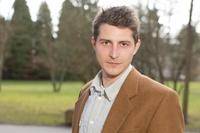
Mike Zapp
University of Luxembourg
Mike Zapp is a post-doctoral researcher at the Institute of Education and Society, Université du Luxembourg. Before joining UL, he worked as a fellow at Johns Hopkins University and Stanford University and held a prior post-doc position at UL within the project The New Governance of Educational Research. His research is interested in institutional change in (global) (higher) education, international organizations and global governance.
Presenting on: Organizational actorhood and integration in global higher education (together with Francisco O. Ramirez, Stanford University)
National higher education (HE) systems are undergoing profound changes, discussed in many but unrelated studies as outcomes of internationalization dynamics and institutional isomorphism pressures. We propose to link these studies by emphasizing the influence of both internationalization and isomorphism on the formation of global educational integration. Through a broad range of indicators, we describe the growth of the discursive, normative, and regulatory dimensions of such global higher education integration. We find evidence of the following developments: 1. a rapidly growing network of international organizations focused on conferences, initiatives, and programs supporting a global higher education agenda; 2. a striking increase in the number of international and national accreditation agencies, their mutual cross-national recognition as well as the number of universities that are nationally and internationally accredited; and lastly, 3. parallel increases in regional qualification frameworks and in the implementation of national qualification frameworks. These developments create integration pressures manifest in the mutual recognition of higher education degrees, for which a new generation of regional conventions has emerged worldwide in the past two decades. We discuss these processes and their implications for understanding ‘national’ higher education.
